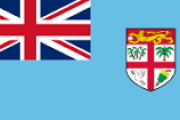Your Excellency, I thank you for the chance to speak about an issue of epidemic proportions in Fiji –– an issue that cuts lives short, holds back our economy, and threatens the future of our nation.
Non-communicable diseases are critically problematic around the world, but in small island developing states, the urgency is even more evident.
That’s why my Government has pledged action, and is taking a holistic approach to finding solutions that will turn the tide for a healthier, happier, and more prosperous future for our children and grandchildren. 70 per cent of Fijians are under the age of 40, with a full 50 per cent below the age of 27; and for our young people, action now can change habits and help their generation reverse the chokehold that NCDs have on our people and their potential.
Our most recent national budgets have pumped huge amounts of capital into building and upgrading our hospitals and health centres, along with training and recruiting skilled nurses and doctors to fill them. We have eliminated import taxes on healthy fruits and vegetables, while also introducing taxes on many of the unhealthy vices that contribute to the development of NCDs like diabetes and cardiovascular diseases. And these include alcohol, sugary sodas and cigarettes. While policies like this may not be politically popular, we don’t have time to sit around and worry about our own political fortunes while thousands of Fijians are dying every year.
Meanwhile, we fully recognise that Government can’t solve every problem, and the private sector can be extremely efficient in finding solutions to longstanding issues; that’s why we’re actively revolutionising our state-run medical system in Fiji with a public-private partnership that will bring state-of-the-art medical care and NCD treatment –– of the quality that Fijians currently have to seek abroad –– right in our own back yard, at no extra cost to patients.
We’re also working to change lifestyles in Fiji, encouraging all of our citizens to stay active throughout their adult lives –– and not to hang up their rugby or football kits and retire on the couch after they’ve passed their physical primes. We are injecting significant capital into developing public sporting fields and facilities, from Olympic-sized pools to gyms to walkways –– all throughout our nation, and actively partnering with NGOs to shift Fiji’s culture and encourage lifelong healthy habits and stave off NCDs.
And, as President of COP23, I’d be remiss not to stress to the world the damning effect that climate change, from rising seas to extended droughts to more severe weather events, has on the health of our people. The aftermath of extreme storms wreak havoc not only on our infrastructure and our economies; the loss and devastation takes a terrible toll on the mental and physical health of Fijians. Being an import-dependent economy, we’re also particularly vulnerable to food insecurity that climate change can cause –– a single cyclone or an extended drought threatens our livestock and agriculture that so many farmers depend on, and the food shortages that follow can leave Fijian families dependent on processed and imported foods for months on end. When considering climate action, I challenge all world leaders to recognise the long-lasting health burden of these weather events and patterns.
Your Excellency, Fiji thanks the United Nations for its leadership in the global fight against NCDs, and for raising global awareness about an issue that has plagued Fiji for far too long. With renewed commitment, may we work hand-in-hand to curb this epidemic once and for all.


